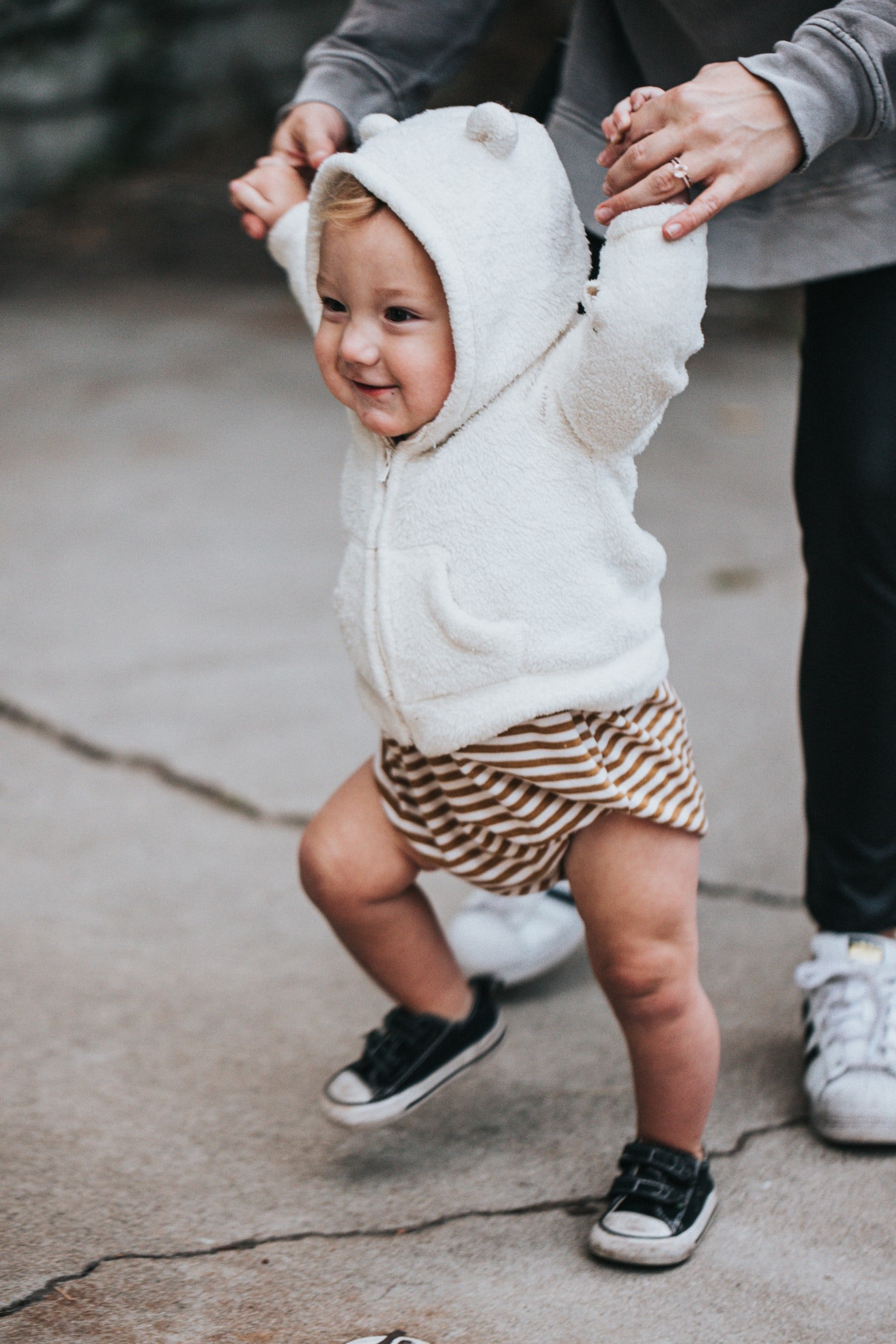Fake News: “My child won’t learn how to walk unless I help them.”
This child is not developmentally ready for walking, which can be seen by his forward lean and heavy reliance on the adult’s support.
THE TRUTH: A developmentally normal child will walk once they have met earlier motor milestones and can correctly stabilize their movement, usually between 14-16 months.
A LOT of development occurs during baby’s first year, and all of these “firsts” are exciting for parents! Sometimes parents become concerned when their child meets a milestone later than an older sibling or another child of the same age.
Parents may even be tempted to help their children “hit” certain stages (like walking) too soon. When it comes to your child’s development, sooner isn’t necessarily better.
"Helping” baby to walk too early (like by holding onto parents’ hands, using walkers, bouncers, exersaucers, etc.) disrupts the normal pattern of movement development, which can lead to improper stabilization of the feet, hips, back, and more.
When baby is learning to move, earlier DOES NOT mean better. As a child is learning to do things for the very first time, it is important to let them learn naturally, rather than learning with compensations. A healthy child’s motor development follows a predictable pattern, and as long as your child is neurologically normal, she WILL learn to walk (and roll over, sit, stand, and run!) perfectly on her own and at her own pace.
UPDATE: The CDC updated their developmental milestone guidelines in February, 2022, and crawling was removed as a milestone and walking was delayed until 18 months of age.
Through the study of developmentally normal children, we can see that most children will walk without assistance between 14 and 16 months. It can be problematic when movements and behaviors are encouraged before a child is ready, but developmental delays are also a cause for concern.
Although walking was delayed until 18 months in the revised milestone guidelines, that does not change the natural progression of human movement. As a parent, you know your child best. If you think your child may have a developmental motor delay, please seek an evaluation from a trained professional instead of taking the “wait and see” approach.

